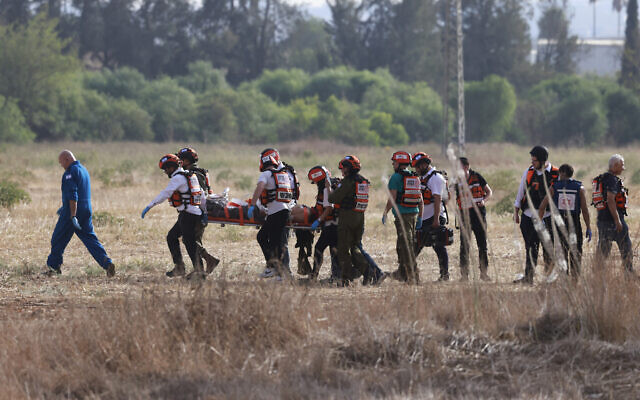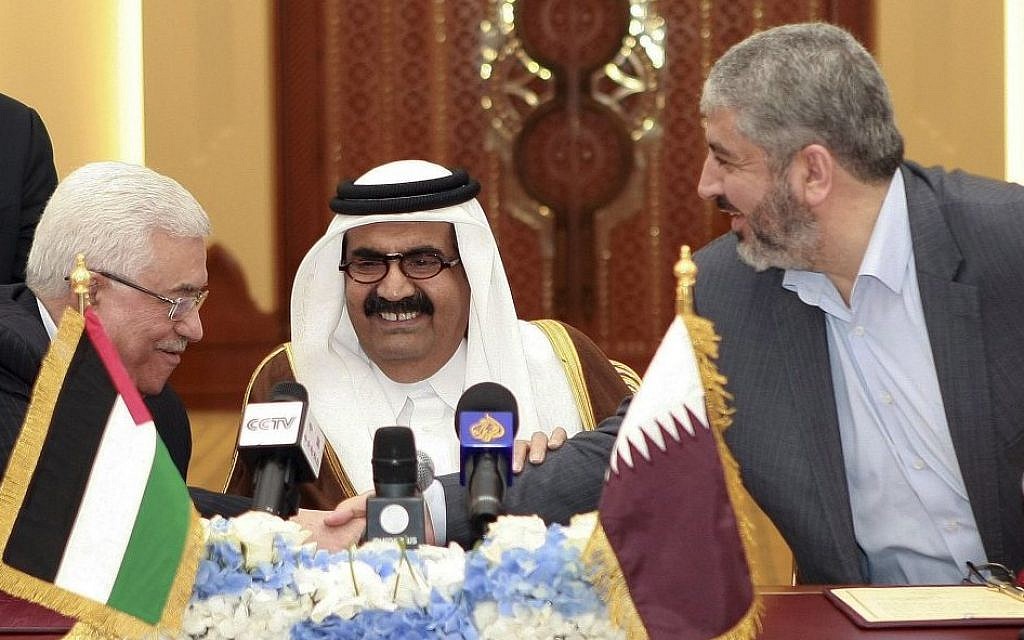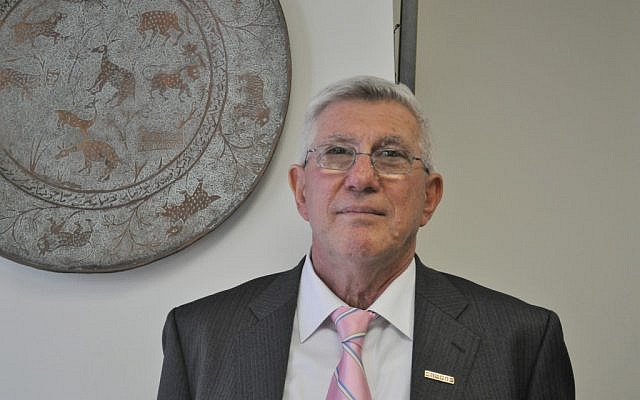At the end of August, Yigal Carmon, a former adviser on counter-terrorism to prime ministers Yitzhak Shamir and Yitzhak Rabin, published a report titled “Signs of Possible War September – October.”
Carmon’s prediction was based on a number of concurring factors, among them: the Jewish holidays, during which groups of Jewish worshipers regularly visit the Temple Mount, a flashpoint of conflict between Israel and the Palestinians; meetings that brought Iranian officials together with members of the Hamas, Hezbollah and Palestinian Islamic Jihad terror groups, increasing the threat of regional war; and the availability of increasingly lethal weaponry in the hands of Hamas and other terror groups, including extra-powerful explosive charges and rockets, that would force Israel to undertake a large-scale response beyond its usual counterterrorism measures.
The forecast, published by the Middle East Media Research Institute, a watchdog better known by the acronym MEMRI, which Carmon heads (and where this reporter was formerly employed), focused mainly on the possibility of an escalation from the West Bank or Lebanon. Gaza was mentioned only in the context of Palestinians in the West Bank adopting Gazan fighting methods.
However it did indicate that a conflict was looming of much larger proportions than the usual rounds of tit-for-tat fighting the IDF and Hamas have been involved in for years.
Both Palestinians and Israelis have drawn parallels between Saturday’s surprise onslaught and the opening of the Yom Kippur war, whose 50-year anniversary was commemorated on Friday.
In an interview with The Times of Israel, Carmon firmly rejected the comparison, looking to a different historical parallel instead.
“What happened on Saturday was a traumatic event of historic proportions, that it will take us decades to overcome, if ever. But it was nothing like the Yom Kippur war,” he said. “That conflict was fought between armies. The assault from Gaza was, rather, reminiscent of the Einsatzgruppen.”
The paramilitary groups, established for the purpose of slaughtering Jews in Nazi-occupied countries, were responsible for the murdering of an estimated 1,5 million Jews. “That is what Hamas did on Saturday: they slaughtered families, they slaughtered young people at a party. Wherever they found Jews, they murdered them,” he said.

Israeli rescue teams evacuate a wounded person near the southern city of Sderot on October 7, 2023, after the Palestinian terror group Hamas launched a large-scale surprise attack on Israel. (Menahem KAHANA / AFP)
Carmon insisted that the signs of the onslaught were on the wall.
“We did not need cameras, nor cyber, to see it coming. It would have sufficed to look at our reckless policy for the past decade with regards to Hamas.
“I consider Netanyahu personally responsible for this policy. He formulated it. All the blood that was spilled is on his hands,” Carmon charged.
Israel’s error is twofold, he said. Firstly, over the years it enacted a policy of separation between Hamas in Gaza and the Fatah-run PA in the West Bank, in the misplaced certainty that the continued discord between the two factions would prevent the establishment of a Palestinian state. The two parties have been mired in conflict since 2007, when Islamist Hamas took over the Gaza Strip from the control of the secularist Fatah.
The second fatal mistake, Carmon argues, was the idea that Israel could buy peace from Hamas, paying for it with Qatari money. Since 2012, Qatar has disbursed about $1.5 billion to the Gaza Strip, with Israel’s tacit approval despite the blockade. Since 2018, the Gulf monarchy has provided $30 million monthly assistance to the coastal enclave, in three tranches of $10 million to pay for salaries for Hamas government employees, fuel, and aid for needy families.
“We Israelis thought we could buy Hamas, but we didn’t buy anyone. Instead, Netanyahu sold out our lives and our security,” Carmon said.
With the false reassurance that the terror group could be paid into submission, Israel became complacent, from the top echelons of government down to the army commanders and the soldiers, Carmon claimed. “Politicians said we are preventing the creation of a Palestinian state, and [Palestinian factions] will just fight with each other.”
That complacency, he argues, is the reason the Israeli army took six hours before intervening to stop the invasion from Gaza, and why so many failures occurred at one time. “Soldiers from the infantry’s Gaza Division were not in their positions, the surveillance systems were shut down, and the separation fence turned out to be a joke. It only took a bulldozer to tear it down,” Carmon notes.
Footage of a Hamas bulldozer taking down the border fence between Israel and the Gaza strip pic.twitter.com/xS0nCA8a5H
— Gianluca Pacchiani (@GLucaPacchiani) October 7, 2023
Hamas, ruling over an impoverished Gaza Strip blockaded by Israel and Egypt since 2007 and isolated from the rest of the world, would not have the resources and the capabilities to carry out its attacks against Israel were it not for international support.
The foreign power that is most often accused of propping it up is Iran. While there is no denying that Tehran contributes to the terror group in various ways – with funding, armaments and military training – the real financial lifeline for Hamas is provided by Qatar.
The Islamist organization has been on Qatar’s payroll for over a decade, and benefited from the latter’s status as a respected state actor to legitimize its position on the international stage.
It is no secret that Qatar has funded radical Islamist groups for years. A small country with vast wealth, the Gulf monarchy has sought to punch above its diplomatic weight by forging alliances with a very heterogeneous set of actors. It has excellent relations with Iran and has held joint military cooperation with its Revolutionary Guard Corps (IRGC), it is a supporter of the Muslim Brotherhood, and has been accused of financing the rise of al-Qaeda and Islamic State.
“Qatar can boast a major broadcasting company, Al Jazeera. Since the start of the war, Al Jazeera has become the mouthpiece of Hamas,” he said, adding that the Qatari channel spreads Hamas’s policy line, propaganda, and incitement. Carmon’s allegation seems to be supported by the fact that Hamas deputy chief Saleh al-Arouri was interviewed by the Qatari broadcaster only a few hours after the war broke out.
Carmon highlighted other evidence pointing to the channel’s support for Hamas, such as the fact that the Arabic version of the Qatari channel refers to Israeli communities in the Gaza border region as mustawtanat, an Arabic word that is only used to refer to Israeli settlements in the West Bank, not towns inside Israel proper. Radical and terrorist groups, however, apply the term to any Israeli locality, under the claim that the whole of Israel is illegitimate and needs to be wiped out. Al Jazeera’s news broadcast in English, however, uses the correct terminology.
“Al Jazeera is allowed to say all of this from here, from the Jerusalem Technology Park,” Carmon continued, referring to the compound where the channel’s Israel headquarters are located. “It’s a scandal. With over $1.5 billion in Qatari money, Hamas has built tunnels, an underground city in Gaza, acquired an impressive rocket launching system and fighting equipment.
“Nobody in Israel, or in the rest of the world for that matter, admits that Qatar is an enemy country,” Carmon said. “It’s time to wake up.”







